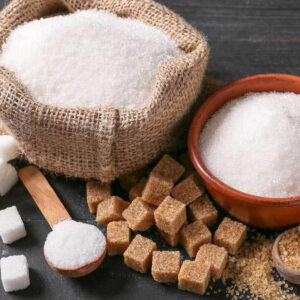Discover the Uses and Conveniences of Beet Sugar Vs Cane Sugar in Your Daily Diet Plan
Exploring the distinct high qualities of beet and cane sugar discloses even more than simply their sweetening capabilities; it highlights their distinct impacts on health and wellness and cooking arts. Beet sugar, known for its subtle flavor, is typically preferred in fragile treats, whereas cane sugar, with its tip of molasses, includes splendor to durable dishes. Each type holds its own nutritional account and glycemic effects, welcoming a much deeper understanding of their duties in a well balanced diet and sustainable intake techniques.
Origin and Production Procedures of Beet and Cane Sugar

The distinct environments and dirt types needed for expanding sugar beetroots and sugarcane add to differences in their cultivation techniques and geographical distribution, affecting the business economics and sustainability of their production. beet sugar vs cane sugar.
Nutritional Comparison In Between Beet Sugar and Cane Sugar
In spite of originating from various plants, beet sugar and cane sugar are nutritionally extremely similar, both largely including sucrose. Each gives regarding 4 calories per gram, translating to approximately 16 calories per tsp. Structurally, both sugars are made up of roughly 99.95% sucrose, with marginal quantities of other materials like wetness and trace element, which do not dramatically change their dietary profiles.

Eventually, when choosing between beet sugar and cane sugar based on dietary material alone, both deal identical benefits and downsides as they are basically forms of the very same molecule-- sucrose, supplying fast energy without other nutrients.
Influence On Health And Wellness: Glycemic Index and Caloric Content
Exploring even Web Site more into the results of beet sugar and cane sugar on wellness, it is vital to consider their glycemic index and calorie content. The glycemic index (GI) of both beet and cane sugar is around 65, categorizing them as high-GI foods, which can cause fast spikes in blood sugar levels.
Each kind of sugar has around 4 calories per gram, making their calorie web content matching. For those monitoring calorie consumption, particularly when taking care of weight or metabolic health problems, comprehending this equivalence is important (beet sugar vs cane sugar). Extreme intake of any kind of high-calorie, high-GI food can add to health problems such as excessive weight, heart illness, and insulin resistance.
Environmental and Economic Factors To Consider of Sugar Production
Beyond wellness effects, the manufacturing of beet and cane sugar likewise elevates considerable ecological and economic problems. Sugar beet growing often tends to official statement need cooler environments and has a lower geographical impact compared to sugar cane, which prospers in exotic areas. Nonetheless, both crops are intensive in regards to water usage and land profession, possibly resulting in logging and water scarcity. Financially, the global sugar market is highly unpredictable, influenced by changes in worldwide trade policies and subsidies. Several nations incentivize sugar production via financial backing, skewing market rates and affecting small-scale farmers negatively.
In addition, using chemicals and plant foods in both beet and cane sugar farming can lead to dirt destruction and pollution, further affecting biodiversity and regional water bodies (beet sugar vs cane sugar). The option in between cultivating sugar beet or cane frequently rests on neighborhood ecological problems and financial aspects, making the sustainability of sugar production a complex problem
Culinary Applications and Flavor Differences
While the environmental and economic facets of sugar production are indeed substantial, the selection in between beet and cane sugar likewise affects culinary applications and taste accounts. Beet sugar, derived from the sugar beet plant, is recognized for its incredibly neutral taste.
Cane sugar, removed from sugarcane, frequently keeps molasses traces, which present a distinct richness and deepness. This small molasses taste improves the intricacy of baked goods, sauces, and sauces. It is particularly preferred in products where a caramel undertone is wanted, such as in brownies or gingerbread. Moreover, the slight variant in moisture material in between beet and cane sugar can impact the structure and consistency try these out of meals, making cane sugar a preferred option for details recipes that take advantage of its distinct buildings.

Verdict
Finally, both beet and cane sugar have unique origins and production processes, offering similar dietary accounts with minor distinctions in sodium content and taste. While their influence on health and wellness, especially concerning glycemic index and calories, is comparable, the option between them frequently comes down to ecological, economic factors, and details culinary needs. Recognizing these aspects can lead consumers in making informed choices that align with their wellness goals and taste choices.
Comments on “Understanding beet sugar vs cane sugar helps shoppers make informed choices about their sugar preferences.”